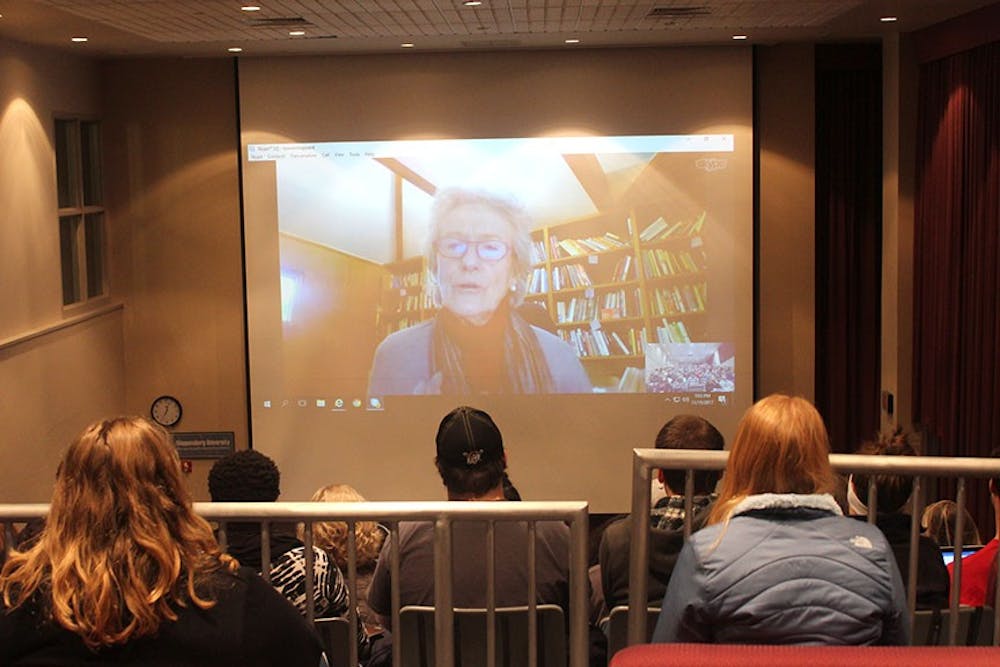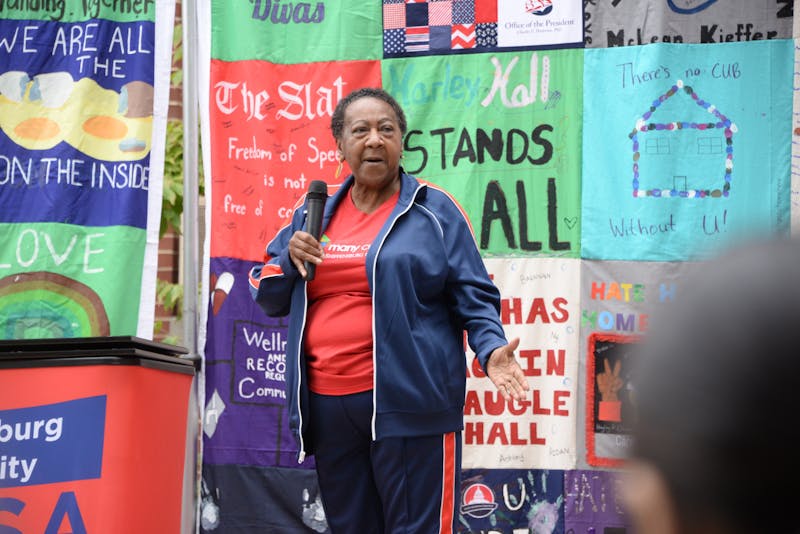Shippensburg University’s Grove Hall Forum was crowded with students waiting to hear Arlie Hochschild from the University of California, Berkeley, to speak on the “Divided States of America.”
Hochschild presented her case on political empathy and on the polarization of American politics.
“Many of the things I wished were in the United States were not going to happen while I was alive,” Hochschild.
She informed the students that she was “living in a geographic bubble” at Berkeley, and that she could not come to realize different views because she was around so many people who she agreed with.
“[I needed to] permit myself with curiosity in the lives and experiences of those with valuable differences,” Hochschild said.
In 2011, Hochschild traveled to Louisiana, a traditionally Republican state, and talked to the people who lived there.
“I wanted to climb the wall of empathy,” she said.
It was during this experience that she wrote her most recent book, “Strangers in Their Own Land: Anger and Mourning on the American Right.”
Over the course of five years, Hochschild interviewed 60 people, 40 of whom were fervent members of the Tea Party. Though these people were friendly, kind and the pinnacle of Southern hospitality, they also felt they were pushed aside in favor of others who were less deserving.
In her talk, Hochschild discussed the “right wing deep story.” She likened white, blue-collar workers to individuals waiting in line on a pilgrimage, who felt as if their hard work was deserving of a great reward.
Yet, for decades, this line had not moved, and they had not received their recompense.
Finally, when former President Barrack Obama was elected in 2012, the line moved, except not for the Republicans.
“Line-cutters,” as Hochschild called them, were shoved into jobs, and were given other benefits through programs like Affirmative Action, while the blue-collar workers stayed in the same spot. These line-cutters were women, minorities and refugees.
This made the Republicans feel like strangers because they did not feel recognized or represented by Obama.
“They felt estranged, that the government abandoned them.” Hochschild said. “They felt, as white Christians, they were a minority.”
Hochschild then contextualized Donald Trump into the fray during the 2016 presidential election.
“He offered people to blame for this sense of decline: women, blacks, the disabled and the line-cutters,” Hochschild said.
“How was it that the Democratic Party of working men and women did not appeal to working men and women?” Hochschild challenged.
She theorized that globalization has created new strains and inequalities, and has unevenly distributed it across the nation.
At the end of her speech, Hochschild posed three personal wishes that she would like to see actualized — Americans defending the Constitution, maintaining the proper checks and balances and encouraging a free press and participation in democracy.
“We need a platform in the Democratic Party that speaks to blue-collar workers,” Hochschild said. “ [We need] for people of both sides to come together and reach out to one-another,” homing in on the idea of cross-party empathy.



The Slate welcomes thoughtful discussion on all of our stories, but please keep comments civil and on-topic. Read our full guidelines here.